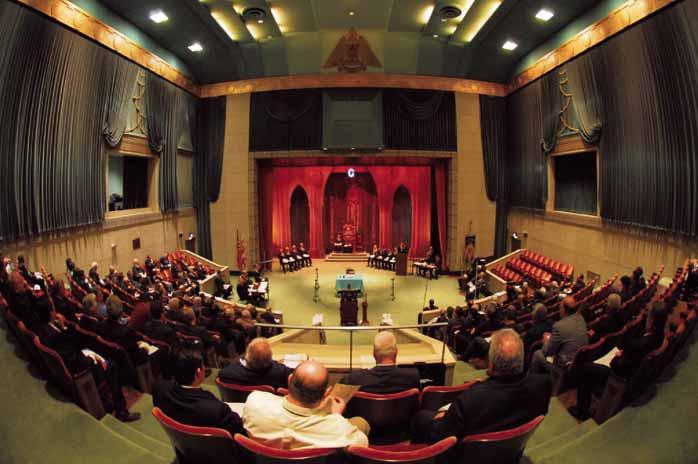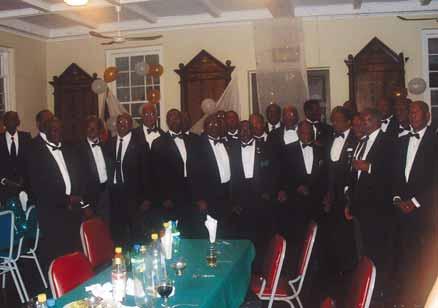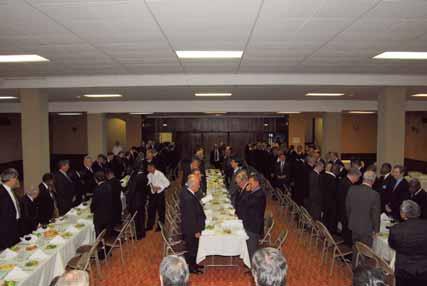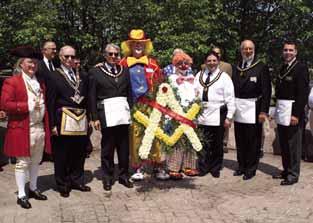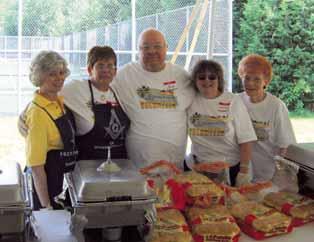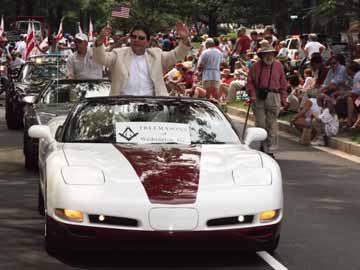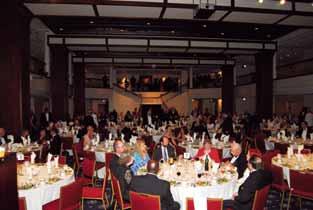
3 minute read
The Essence of Masonry
It is a well-established custom that Freemasons come together purposefully on a regular basis. We do so for a number of reasons: (1) to socialize; (2) to review our fortunes; (3) to add or detract from our numbers; (4) on occasion, to select our leaders; and (5) always, to perfect our plans, short and long range, in order to cope with the challenges that we may or may not be able to correctly identify.
Over the years I have given much thought to the role that Freemasonry has played, not only in my personal life, but more importantly, in the evolution of the society in which we live. And being as profoundly pro-Masonry in outlook as I am, I grieve over the obviously declining influence that is exercised, particularly in this country, by those who call themselves Freemasons. Are moral and spiritual values no longer in demand, or are we simply failing in our promotional efforts?
Since my retirement from full time employment in Freemasonry, I have had the opportunity to focus attention on the fortunes of the Craft. And as I try to understand what I see and what I read, my mind goes back to the night when I was initiated. On that occasion I realized that I had reached a turning point in my life, and while I could not at that time appreciate where Masonry would take me, I was convinced that my life, from that moment on, would never again be the same.
As I frequently contemplate my initiation into the fraternity, my mind inevitably goes back to a prayer that was recited on that occasion by my conductor. He reminded me, in letter perfect ritual, to “behold how good and how pleasant it was for brethren to dwell together in unity.” While I may not have been able at that time to fully appreciate the import of those words, I have, in the years that have since transpired, learned to appreciate that these words, written by the Psalmist centuries ago, accurately proclaim the essence of Masonry — what it has been, is now, and, hopefully, what it will be in the future. Stewart W. Miner, P.G.M., Grand Secretary Emeritus
Appreciation of the potential of unity is not restricted to Masons alone, however, for the concept has commanded the attention of men of stature throughout history. Lincoln, for example, proclaimed that a house divided against it cannot stand. Marcus Aurelius, many centuries earlier, observed astutely that men are made for cooperation, “like feet, like hands,” making action against one another “contrary to nature.” I particularly like Etienne Senacour’s discerning observation that union, when perfect, can do everything.
Underlying these and other like observations pertaining to the concept of unity is a basic but seldom recognized truth — that often it is out of a lack of unity that unity evolves. This is well illustrated in Masonry by the formation of the United Grand Lodge of England, the Mother Grand Lodge of the world, an 1813 action which settled what had been a very contentious matter and united English Masons who had been seriously divided for the better part of a century.
Thus our English forefathers, perhaps without intent, not only established Masonic harmony in their country, but by voluntary and conciliatory action, they also created the foundation upon which the parameters of Masonry were subsequently established worldwide. That act of unification became, in reality, the fundamental law of the Craft, a merging agreement whereby Masons, from that time on, committed themselves to the cause of cooperation.
The creation of unity out of disunity is not confined to Masonry alone, however, as any cursory review of the pages of history will attest. Our forefathers established this nation in consequence of dissatisfaction with the political environment in which they lived. It was also dissatisfaction with the status quo that led to the establishment of such organizations as the League of Nations; the successor to that organization, the United Nations; the European Union, NATO,
continued on page 26

